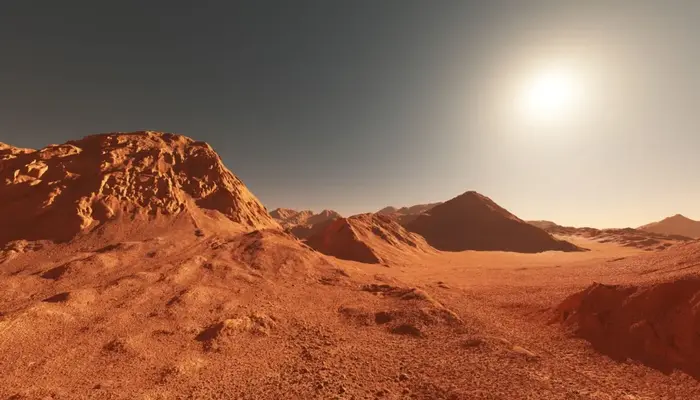
Did life ever begin on Mars? Renowned geologist Stephen Mojzsis believes not. As a veteran researcher in ancient geological formations, he argues that Mars likely never progressed beyond basic prebiotic chemistry. Although Mars may have hosted some early orgnic reactions, Mojzsis contends that it never reached the biochemical complexity necessary for life.
Martian Chemistry and Habitability
For life to arise, conditions must support a stable chemistry out of equilibrium with the environment. Mojzsis points out that Mars, with its dry and frozen surface, lacks the active chemistry seen in more habitable zones of the solar system. Despite theories suggesting that Mars once held liquid water, Mojzsis asserts that it remained outside the true “habitable zone.” If Mars had ever achieved life-supporting chemistry, he reasons, it would still affect its environment today—a clear marker that scientists have not observed.
Read: Your Nails Can Tell You a Lot About Your Health
Earth’s Unique Life-Forming Conditions
The geological transitions needed for life on Earth required a fluid interface where rocks, gases, and water interact. “The origin of life is really a problem of interfaces,” explains Mojzsis, citing Earth’s complex geosphere, hydrosphere, and atmosphere. These reactive interfaces allowed early molecules to evolve through contact with mineral surfaces, whose slight chemical imperfections created an ideal setting for organic complexity.
The Role of RNA in Life’s Beginnings
Mojzsis emphasizes RNA as the molecule that likely led to life on Earth. RNA, due to its capacity to pass on genetic information, likely acted as an early molecular bridge between lifeless chemistry and biology. According to Mojzsis, the distributed chemical charges and defects on mineral surfaces may have helped these early RNA molecules acquire simple, inheritable traits. Thus, over time, this molecular evolution introduced basic instructions that allowed organisms to adapt and respond to environmental pressures, marking the birth of life as we know it.
Breaking Symmetry and Building Complexity
The formation of life required “breaking symmetry,” a process Mojzsis describes as the shift from random chemical patterns to functional information encoded in RNA. Minerals on Earth likely played a role, allowing RNA precursors to evolve into more complex molecules. Yet how these initial RNA molecules gained the ability to replicate remains a fundamental question in origins research.
Discovering Extraterrestrial Life: Clues for Earth
For Mojzsis, finding life on other planets could reveal much about life’s origins on Earth. If extraterrestrial life is similar—particularly if it contains RNA or DNA bases—it may indicate that life’s biochemical pathways are universal. However, Mojzsis acknowledges that extraterrestrial life might follow different chemical rules, which would broaden our understanding of life’s potential diversity across the universe.
Mars and the Limits of Life’s Potential
Mars may have stopped at the threshold of life, hosting only limited prebiotic chemistry. Mojzsis, reflecting on decades of research, notes that the essential conditions for Earth’s life—stable liquid water, reactive mineral surfaces, and chemical energy—likely never fully aligned on Mars. However, with no clear evidence of biotic activity on Mars, he suggests that the planet remained in a lifeless state, a silent witness to the universal challenges of creating life. For now, Mars remains a fascinating but barren frontier, reinforcing Earth’s rare and intricate path to life.
This perspective challenges the popular idea of Mars as a “lost cradle” of life, suggesting instead that the Red Planet may never have reached beyond its chemical infancy. Understanding Mars’ limits may ultimately deepen our insights into the rare, complex recipe that brought life to Earth.
Follow us on Google News, Instagram, YouTube, Facebook,Whats App, and TikTok for latest updates












